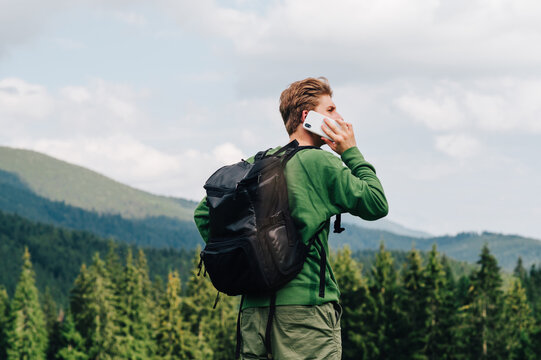
Men being ignorant of avalanche forecasts while unable to look beyond their mobile phones can be extremely dangerous in Scotland’s mountains, according to a female climbing expert.
Heather Morning just took over as chief teacher at Scotland’s national outdoor training center, Glenmore Lodge. She has urged tourists to “think winter” this spring.
Climbers misunderstanding severe conditions on the summits has increased the mountain rescues by 40% recently, according to Scotland authorities. Seven individuals have already died on the hills this month.
Morning is based in Aviemore. It is 50 miles northeast of Fort William. She said, “Into March, we get longer daylight hours, and down in the glen here it very much feels like summer. People aren’t switched on to the fact they might still need an ice axe and crampons up high.”
Warmer days and frosty nights, combined with snow still falling in the Cairngorms, have made conditions even more perilous, with meltwater hardening to hard ice.
“Inevitably, we see fatalities of people stepping on old hard snow, taking flight and rattling off into rocks or off cliffs. Loss of life is complex, but there are definitely some trends. Virtually all fatalities in the Scottish mountains are men. Men over 60 are the demographic that get into difficulties,” Morning added.
Morning examined statistics from seven years up to the start of 2019 in her previous capacity as mountain safety adviser at Mountaineering Scotland and discovered that women accounted for only 10 of the 114 fatalities.
Generalizations and differences

She said: “You make generalizations about male and female attributes with regard to risk-taking and obviously it doesn’t reflect everybody, but from the many years I’ve spent training people, guys tend to overestimate their ability and give things a go, and don’t think that they need formal skills training, whereas ladies tend to swing way the other way.”
Women, according to Morning, have significantly less confidence in their talents. Thus, they are more ready to take courses like navigation, “which some people think is irrelevant, when it is the absolute cornerstone of mountain safety”. She thinks that the “basic navigation error of putting people in the wrong place” is responsible for around 25% of mountain rescue occurrences.
The aversion of men to learning about navigation coincides with a widespread belief among young people that all they need is an app. “As a younger person, your whole life is oriented around your mobile phone. So it seems very natural to take it into the mountain environment, while a map and compasses feel outdated,” she said.
It’s even more difficult to persuade people who don’t think outdoor resources are important to them. “If we take the classic example of someone driving up from down south to climb Ben Nevis – I suspect that most people you meet on the main track up and never will have never even heard of the avalanche forecast”.
“Never judge a book by its cover”
Morning worked as a typist before being knowing the Mountain Leader program while helping with a local youth group. She says that women are growing interested in outdoor activities, but this equality doesn’t extend to those seeking leadership positions.
Bonnie Boots, a Glasgow-based organization, organizes women-only hillwalking sessions for women of all ethnic origins. It has benefited from her advice. She has additional plans for a training program to encourage other Bame women to pursue leadership positions.
Her decades in the mountains have taught her to never assume anything about a person’s climbing ability. This also includes pets. She was in shock when a “tiny little chihuahua” showed up with its owner to join a navigation course. It was in the Ochills.
“Oh my god, it was as hard as nails. The thing came off the hill filthy, having had a ball and it’s done something like 18 Munros. So never judge a book by its cover,” she said.
